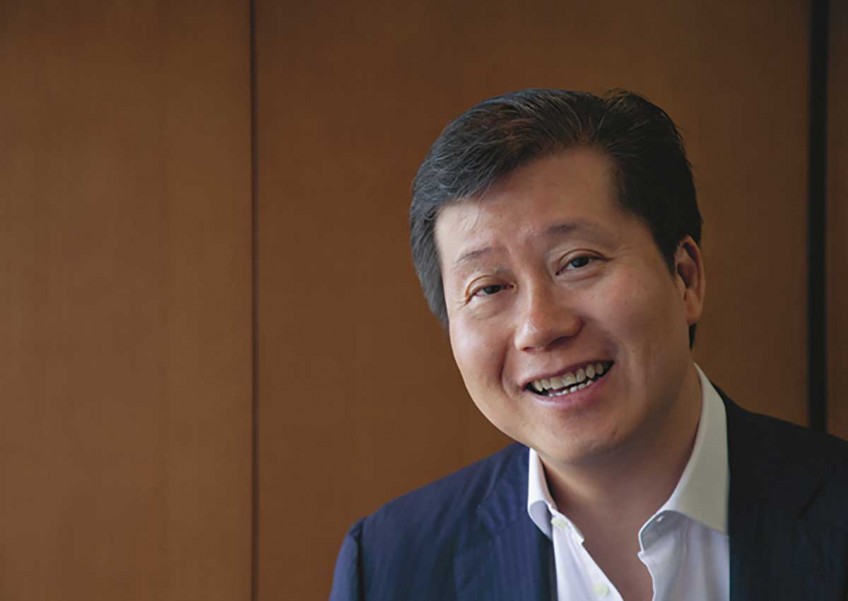HK-based PE firm eyes S'pore high-end homes, prime offices

Hong Kong-based private equity real estate firm Phoenix Property Investors is on the prowl for more investments in South-east Asia.
Currently it has invested about US$120 million (S$170 million) - or 5 per cent of the US$2.5 billion it has raised since it was set up in 2002 - in Jakarta, Manila and Singapore.
The goal is to grow the region's share to 15-20 per cent over time, if there are opportunities, said Samuel Chu, co-founder, managing partner and chief investment officer at Phoenix Property Investors, in an interview.
The group's total assets managed and under management stands at over US$6.7 billion - in the luxury residential, retail and office sectors.
So far, all that Phoenix has bought in Singapore are three pairs of conservation shophouses at 48-56 Peck Seah Street for S$42.8 million in 2014.
It has spent a further S$2 million sprucing up the asset, which is 82 per cent let.
The property, with a total lettable area of about 20,000 sq ft, is generating around 3 per cent net yield.
Mr Chu said Phoenix is keen to make further investments in Singapore selectively, targeting the high-end residential and prime office assets here as he believes the bottom is near for these two segments and quality assets acquired at a reasonable price will do well when the market picks up in the medium term.
Brokers have been showing the group deals for potential bulk purchases in high-end Singapore residential projects.
"Obviously now the high-end residential and office markets are soft (but Singapore) is a financial hub. It is a regional hub for South-east Asia.
The legal system is very good here, very transparent. The government knows what they are doing.
I like the medium/long-term prospects for Singapore, but we have to find the right deal," said Mr Chu.
Besides the high-end residential segment and offices, the group has also been looking at the retail property segment, Mr Chu added.
For now, Phoenix is more keen on investing in existing completed properties in Singapore, doing asset enhancement works and repositioning them if necessary - rather than to embark on a new development, given prevailing bullish land prices.
"To do development in Singapore right now, with the land prices we have seen recently, doesn't make sense to us, for the return that we want," he added.
Phoenix is also keen on the Manila office market and Jakarta's residential sector - and in both cases, "it probably makes more sense to do development as there is not much existing stock and (land) prices are more reasonable".
Mr Chu believes that Jakarta and Manila offer demographics that are strong fundamental drivers for real estate.
"We are very bullish on the long-term potential of South-east Asia's real estate markets and will be raising our portfolio allocation to the region.
Most countries in South-east Asia are bucking the ageing demographic trend as well as rapidly growing their middle-class population, both of which bode well for the property sector."
In line with this intention, Phoenix, which was set up in Hong Kong by Mr Chu and Benjamin Lee, is expanding its investment footprint from North Asia, particularly Hong Kong, Japan and China, to the South-east Asian region.
Among Phoenix's current investments in South-east Asia are a 75 per cent stake in Tomang Park, a high-rise residential development in Tomang, Jakarta that will comprise about 2,000 residential units.
The total development cost is around US$80 million and the project will be launched for sale early next year.
In Simatupang, Jakarta's second CBD, Phoenix has invested through a preferred equity structure in a US$100 million mixed-development that will have a total saleable area of 56,000 square metres - comprising 34,000 sq m of office and retail space and 22,000 sq m of residential space.
In Manila's Makati district, Phoenix is also a preferred equity investor in Century Spire, an office and residential mixed development by Century Properties Group.
The total saleable area is 53,000 sq m (with a 42:58 mix between offices and residences).
This project, which is 70 per cent sold, is being developed at an estimated cost of US$150 million. All three projects are slated to be completed in 2019.
Mr Chu highlighted that Century Spire will be part of the bigger Century City project coming up on a sprawling 3.4-hectare site and which also includes Trump Tower Manila.
The US$120 million equity that Phoenix has invested so far in South-east Asia was allocated from the US$750 million Fund V; so far close to US$500 million of Fund V has been invested.
Further investment in South-east Asia will come from the uninvested equity from this fund as well as co-investments from existing investors outside the fund structure.
"It is never a lack of capital. It is lack of finding the deals," said Mr Chu.
Phoenix's investor profiles include pension funds from Europe and America, sovereign wealth funds, insurance companies, endowment funds from universities (such as the University of Michigan), foundations and big family offices.
The World Bank Pension Funds and the US-based The Church Pension Fund are among the names Mr Chu cited.
Mr Chu says most countries in S-EA are bucking the ageing demographic trend and rapidly growing their middle-class population, both of which bode well for the property sector

This article was first published on December 06, 2016.
Get The Business Times for more stories.